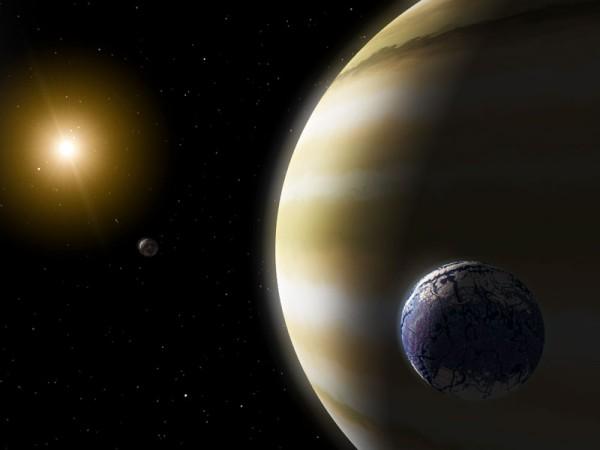
Researchers have recently spotted more than 100 planets outside of our solar system. It appears that these planets might have moons, which are capable of harboring life. According to the researchers' estimates, each of these planets is over three times the width of Earth. Probably, they all host quite a few large moons.
Scientists have made use of the data derived from the Kepler space telescope and identified a total of 121 planets. All these planets are orbiting their star within the habitable zone.
This research has been a joint effort by the scientists from the University of California (UCR), Riverside and the University of Southern Queensland.
"There are currently 175 known moons orbiting the eight planets in our solar system. While most of these moons orbit Saturn and Jupiter, which are outside the sun's habitable zone, that may not be the case in other solar systems. Including rocky exomoons in our search for life in space will greatly expand the places we can look," an associate professor of planetary astrophysics and a member of the UCR's Alternative Earths Astrobiology Center, said Stephen Kane.
NASA had launched the Kepler telescope in 2009 and at that point of time, it has identified thousands of planets beyond our galaxy.
As per this new research, scientists believe that exomoons might be more capable of supporting life than our home planet because those moons receive energy from the host star as well as the radiation reflected off the planets. However, still, the scientists have to confirm the existence of the exomoons. This new result might narrow down the search to 121 possible giant planets that may have such moons.
"Now that we have created a database of the known giant planets in the habitable zone of their star, observations of the best candidates for hosting potential exomoons will be made to help refine the expected exomoon properties," Michelle Hill, an undergraduate student at the University of Southern Queensland, said. Hill is currently working with is working with Kane.

















